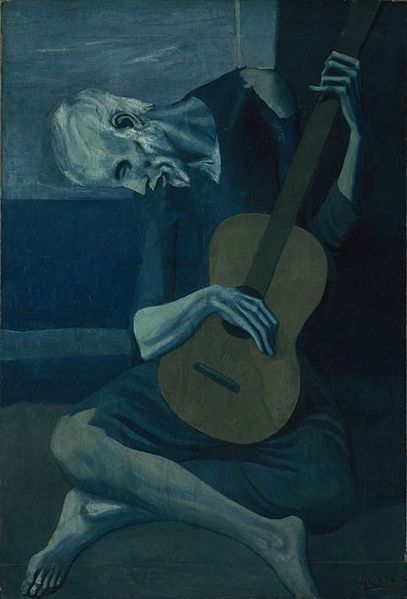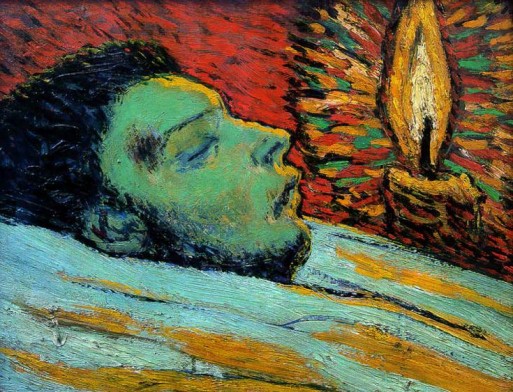Pablo Picasso is known for the fluidity of his work. He frequently went through artistic phases (Cubism being the most notable) that dictated the style and subject matter of his paintings. His so-called Blue Period took place between 1901 and 1904, and featured artwork painted in shades of blue or blue-green. The paintings typically focused on solitude, struggle, and poverty; outsider-types like prostitutes and beggars were common.
But why exactly did Picasso enter the Blue Period? The answer is, the artist became very depressed near the end of 1901. A close friend of his named Carles Casagemas committed suicide that year after falling in love with a woman that didn’t return his affections. This profoundly affected Picasso, and his paintings began reflecting those emotions — blue, after all, is a symbol of sadness.
Picasso attempted to purge himself of his pain through his art, which is why his work often explores themes like suffering, committing suicide and mortality were explored. He started with “The Death of Casagemas” in 1901, and continued to paint portraits of him over the next two years. While perhaps therapeutic for Picasso, these melancholy paintings were not popular with the public. But luckily for both the artist and his fans, Picasso’s depression gradually began to fade, and by 1904, he had pulled out of the Blue Period and into his Rose Period, which was characterized by brighter colors and more cheerful subject matter. This just goes to show that while grief may seem never-ending, it does, in fact, heal.
Related Reading:
- Learn more about Picasso’s Blue Period
- Visit Pablo Picasso’s official website

 Pablo Picasso’s Blue Period
Pablo Picasso’s Blue Period




 “As Tears Go By” by Marianne Faithfull
“As Tears Go By” by Marianne Faithfull
 “The Sea” by John Banville
“The Sea” by John Banville
 Funeral Favors Offer Visitors a Tangible Memento
Funeral Favors Offer Visitors a Tangible Memento















